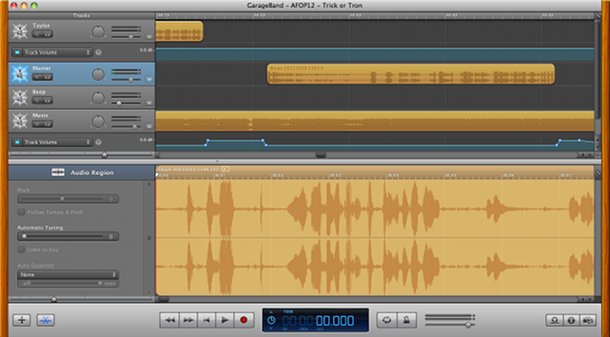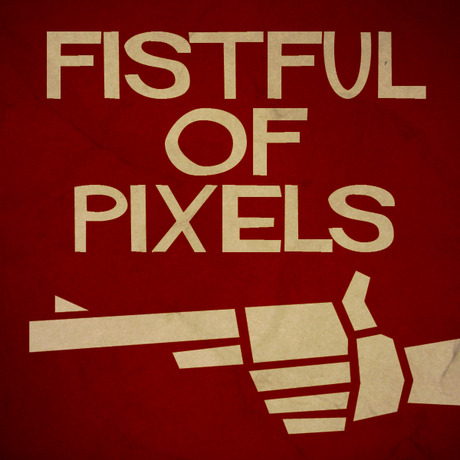
A while back I participated in a week long game programming contest called Pyweek. Much like the name implies, it challenged participants to develop a game in one week in the Python programming language. To keep things fair, five possible themes were posted on the website to be voted on by the contestants, with the winning theme being posted at midnight on the first day of the competition. This prevented anyone from working on the game early. Each theme was a phrase, roughly three words long. Like most other contestants, my friend and I began brainstorming all of the phrases early in order to have a jumping off point when the contest began.
We were actually really surprised with the results. The best game we came up with was a Root Beer Tapper clone. You played as a bartender and you’ve been chatting up this cute girl at the bar all night. The problem is that all the bros at the bar have their eye on her as well. As the game progresses, these bros are sliding down the bar, getting closer and closer to the girl in an attempt to woo her with how much they can bench or how many shots they can do in a row. So what you do is you start slipping things into the bros’ drinks as you slide them down the bar so that they pass out on the floor before they get to her. If you’re quick on your feet and true of heart you can cock-block guys for the entire night and go home with the girl, stepping over a massive pile of unconscious bros as you leave the bar. The game was called “Roofie Tapper”.
It was just after we finished coming up with that idea that I realized it would be a great idea for a podcast. Three or four people take short phrases and spend a minimal amount of time brainstorming a game idea based on that phrase. It was easy, sustainable, and to my knowledge, no one was doing anything quite like it. About a month later, A Fistful of Pixels was born. I had no idea how to make a podcast, no recording equipment, and no idea where to start. And to tell the truth, the internet was not much help. I found only generic unhelpful advice like “Make sure you have an original idea” or “believe in yourself”. As a result of this lack of information, I made a lot of mistakes.

1. Branding
When I started the podcast with my co-hosts Ben Pack and Russ Walsh, we just threw it together real quick. Ben came up with the name, A Fistful of Pixels, and Russ sat there quietly while we did all the work. I didn’t really think more than thirty people tops would listen, so the last thing on my mind was branding. Here’s a tip: When deciding on a name for your podcast or website or whatever, grab everything you can with that name. I’m talking the domain, twitter, relevant email addresses, a Facebook page, whatever you can think of. Do that even if you don’t think you’ll use them. There are a couple of reasons for this. First, you want to have a presence in as many places as possible to make it easy for people to find you. Second, it helps you decide if your name is sustainable.
This became a problem for the podcast when I tried to create a twitter feed and realized “@AFistfulofPixels” was too long by just one character so I had to shorten it to “@FistfulofPixels”. Later on, I found that the domain “www.afistfulofpixels.com” was already taken, forcing me to settle for “www.fistfulofpixels.net”. Those kinds of difference, even though they seem small can mean the difference between a potential listener finding your podcast or not. The moral here is uniformity.
2. The RSS Feed
One of the things we wanted to do in creating a website was to start hosting the podcast ourselves. We had been using Podomatic which is a nice service for a podcast starting out but as the show started picking up steam, the service left a lot to be desired. For one, Podomatic’s stat tracking is extremely limited. Unless you’re a pro member ($9.99 a month minimum), you can only see the previous day’s statistics. Even when we became a pro member, sometimes the stats would be down for days at a time. Also, we started hitting our bandwidth cap and had to pay for additional bandwidth each month. That’s reasonable but we were already paying for unlimited bandwidth for our website. It seemed silly to buy something we already had.
This next part is a little inside baseball, but important all the same. In order to begin hosting the show ourselves, we had to be able to tell iTunes where to find it going forward. The biggest problem was that in order to change the RSS feed (read: The listing of episodes that iTunes or similar services use to distribute your show to listeners) in iTunes, you have to include a tag in the actual RSS file itself with the new URL of the show. Podomatic, for good reason mind you, doesn’t allow it’s users to edit that file directly. Obviously we could just submit a new RSS feed to iTunes but then we would run the risk of losing a lot of our subscribers.
We’re still figuring out the solution to this problem but if I had the foresight, I would have used a service like Google Feedburner. Think of it like a proxy RSS feed. Using the Podomatic example, I would just plug in the URL of my Podomatic feed into Feedburner, and then submit the resulting RSS feed that Feedburner provides to iTunes. Then later on when I wanted to change where I’m hosting the podcast, I would just plug in the new RSS feed into Feedburner and iTunes would never know the difference. Knowing that early on would have saved me an enormous headache.
3. Overzealous editing
That’s all big picture stuff, but obviously the most important part is the content, right? When I first started, I had this grand image of what I wanted the format of the show to be. I was cutting out every little “um” or pause or joke that I didn’t think was quite funny enough. Suffice it to say I was being a little overzealous. I wanted the show to be perfect. The thing you need to realize is that you’re always your own worst critic. Everyone I’ve talked to who’s tried to start their own indie podcast and quit has done so because of the massive undertaking that editing brings.

The answer to this is to pick your battles. As I said, I wanted the show to be perfect, but I also wanted to release an episode every week. It was very difficult to maintain and it wasn’t long before I was going a week here or a month there without releasing an episode. Without a regular release schedule it’s easy for listeners to forget your show exists. That could have been easily avoided by either releasing biweekly or just being a little more relaxed when editing the show.
Needless to say, starting my own podcast has been a learning experience. In the next couple of weeks the show will be going through something of a relaunch phase while we put what we’ve learned to good use. Admittedly, had we known these things from the outset we could have saved a lot of hassle, so hopefully anyone else hoping to start their own indie podcast can learn from the experience. Starting Fistful of Pixels was definitely a huge highlight for me in 2011 and I’m excited to see where it will go in 2012.
Fistful of Pixels is an improvisational comedy podcast about theoretical video games soon to be found right here on Sidequesting. Past episodes can be found on iTunes or at http://bit.ly/afistfulofpixels.


No Comments